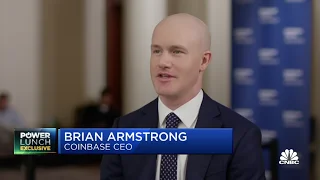El Salvador’s Bitcoin Strategy Faces IMF Scrutiny: What’s Next for the Crypto Experiment?

El Salvador’s bold Bitcoin experiment has been a source of global fascination since 2021, when the country, under the leadership of President Nayib Bukele, became the first nation to adopt Bitcoin as legal tender. This move not only drew widespread attention but also generated both praise and criticism. While the country has positioned itself as a crypto pioneer, its Bitcoin strategy is now facing increased scrutiny from the International Monetary Fund (IMF).
The IMF has been in discussions with El Salvador, urging the nation to rethink its approach to Bitcoin. The organization’s concerns center around economic stability, governance, and the risks posed by Bitcoin’s volatility. These warnings have sparked questions about the sustainability of El Salvador’s Bitcoin ambitions and whether the country’s bold experiment is at risk of unraveling.
The IMF’s Concerns Over El Salvador’s Bitcoin Exposure
In recent months, the IMF has made clear its discomfort with El Salvador’s heavy reliance on Bitcoin. Julie Kozack, the IMF’s director of communications, emphasized in a press briefing that while the risks have not yet fully materialized, they remain significant. Kozack outlined the organization’s recommendations for narrowing the scope of the country’s Bitcoin law and reducing its exposure to the cryptocurrency.
“What we have recommended is a narrowing of the scope of the Bitcoin law, strengthening the regulatory framework and oversight of the Bitcoin ecosystem, and limiting public sector exposure to Bitcoin,” Kozack stated.
The IMF’s concerns go beyond the volatility of Bitcoin’s price. The organization has highlighted potential risks to El Salvador’s fiscal health and financial stability. Although El Salvador’s Bitcoin holdings are modest in the context of its overall economy—5,748.8 Bitcoins valued at $352 million—the IMF fears that further exposure could lead to heightened macroeconomic risks.
In August 2024, the IMF announced a broader program designed to address these issues. The proposed program aims to improve the governance of El Salvador’s financial system, increase transparency, and boost bank reserve buffers. The IMF also emphasized the importance of reducing Bitcoin-related risks as part of this program, calling for closer oversight and regulation of the country’s Bitcoin activities.

El Salvador’s Bitcoin Experiment: Progress and Pitfalls
When El Salvador adopted Bitcoin as legal tender in 2021, it was heralded as a groundbreaking moment for cryptocurrency. President Nayib Bukele promised to integrate Bitcoin into the national economy and embarked on an ambitious plan to make the country a crypto hub. This included initiatives like building a “Bitcoin City” powered by geothermal energy, offering tax incentives to crypto investors, and adding one Bitcoin per day to the country’s balance sheet.
Currently, El Salvador holds 5,748.8 Bitcoins, which were valued at $352 million as of October 2024. However, the country’s reliance on Bitcoin has not been without controversy. Critics argue that Bitcoin’s volatility poses a threat to economic stability, and there are concerns that its use as legal tender may not have the desired long-term effects.
The IMF’s Push for Regulatory Reforms
The IMF’s primary recommendation is to scale back El Salvador’s exposure to Bitcoin by introducing tighter regulations. This would involve narrowing the scope of the Bitcoin law, which currently allows for widespread use of the cryptocurrency throughout the country’s economy. While the Bitcoin Law is seen as a radical experiment in financial sovereignty by its supporters, the IMF views it as a potential liability for economic stability.
El Salvador’s current Bitcoin strategy also leaves it vulnerable to sharp swings in the cryptocurrency market. The price of Bitcoin can be notoriously volatile, and while the country has profited from Bitcoin’s rise in recent years, it also faces significant risks if the price were to drop suddenly. The IMF has cautioned that Bitcoin’s volatility could lead to fiscal and financial instability, urging the country to adopt a more cautious approach.
Furthermore, the IMF’s call for stronger regulatory oversight reflects its broader concerns about governance and transparency in El Salvador’s Bitcoin activities. Critics have argued that the lack of a comprehensive regulatory framework makes the country susceptible to misuse of funds, corruption, and other issues. The IMF’s proposed program, if implemented, would aim to address these concerns and ensure that Bitcoin is used in a way that supports long-term economic stability.

The Future of Bitcoin in El Salvador: What’s Next?
The ongoing discussions between El Salvador and the IMF are crucial for determining the future of the country’s Bitcoin strategy. The IMF’s concerns are significant, and the organization has the power to influence economic policy in El Salvador through its lending programs and other forms of support.
If El Salvador chooses to heed the IMF’s recommendations, it could mark a shift in the country’s Bitcoin strategy. Scaling back on Bitcoin-related activities and introducing tighter regulations may help mitigate some of the risks identified by the IMF. However, it could also slow the momentum behind President Bukele’s vision of a Bitcoin-powered economy.
On the other hand, El Salvador could continue down its current path, betting that Bitcoin will deliver long-term benefits for the country. Proponents of Bitcoin argue that the cryptocurrency represents a way for countries like El Salvador to achieve greater financial independence, reducing their reliance on traditional banking systems and international financial organizations like the IMF.
Conclusion: A Tipping Point for El Salvador’s Bitcoin Experiment
El Salvador’s adoption of Bitcoin as legal tender has been a bold experiment, but it is now facing a critical juncture. The IMF’s concerns about economic stability, transparency, and Bitcoin’s risks are pushing the country to reconsider its strategy. Whether El Salvador chooses to scale back its Bitcoin exposure or double down on its crypto ambitions will have significant implications for both the country and the broader world of cryptocurrency.
For Bitcoin enthusiasts, the outcome of these discussions is worth watching closely. El Salvador’s experience will offer valuable lessons on the viability of Bitcoin as a national currency and the role that cryptocurrency can play in modern economies. As the world’s first country to embrace Bitcoin so fully, El Salvador’s success—or failure—could shape the future of crypto adoption globally.










Discussion about this post